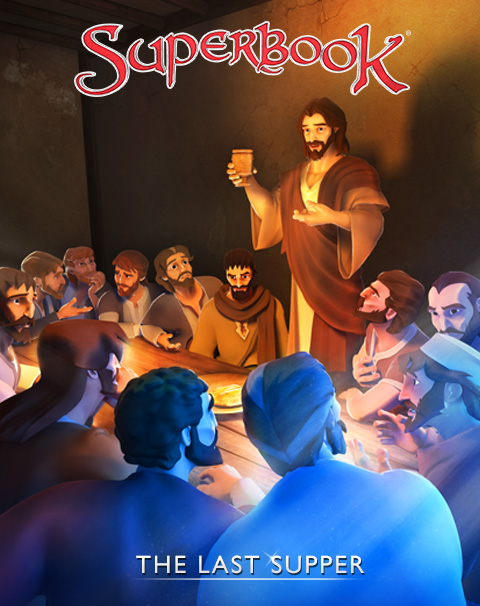49
Jesus His Commandment
- Receive him whom I will send John 13:20 Verily, verily, I say unto you, He that receiveth whomsoever I send receiveth me; and he that receiveth me receiveth him that sent me.
This Primary Bible reference is a unique Bible reference according to the words of Jesus, which best summarizes this step.
- It is a sin to despise one’s neighbor
All Jesus His steps can be grouped into the Ten Commandments from the Old Testament (Exodus 20).

Direct Bible References
Extra direct Bible references which expands or explain the same step.
- Leviticus 19:33-34 ¶ And if a stranger sojourn with thee in your land, ye shall not vex him. But the stranger that dwelleth with you shall be unto you as one born among you, and thou shalt love him as thyself; for ye were strangers in the land of Egypt: I am the LORD your God. (Author: 'HEERE')
- Isaiah 58:7 Is it not to deal thy bread to the hungry, and that thou bring the poor that are cast out to thy house? when thou seest the naked, that thou cover him; and that thou hide not thyself from thine own flesh? (Author: 'Isaiah')
- Matthew 25:35 For I was an hungred, and ye gave me meat: I was thirsty, and ye gave me drink: I was a stranger, and ye took me in: (Author: 'Jesus')
- Romans 12:13 Distributing to the necessity of saints; given to hospitality. (Author: 'Paul')
- Hebrews 13:2 Be not forgetful to entertain strangers: for thereby some have entertained angels unawares. (Author: 'Unknown')
Indirect Bible References
Extra, more indirect Bible references, relating to the same step.
- 2 Samuel 22:21-23 The LORD rewarded me according to my righteousness: according to the cleanness of my hands hath he recompensed me. For I have kept the ways of the LORD, and have not wickedly departed from my God. For all his judgments were before me: and as for his statutes, I did not depart from them. (Author: 'HEERE')
- Matthew 10:40-41 ¶ He that receiveth you receiveth me, and he that receiveth me receiveth him that sent me. He that receiveth a prophet in the name of a prophet shall receive a prophet’s reward; and he that receiveth a righteous man in the name of a righteous man shall receive a righteous man’s reward. (Author: 'Jesus')
- James 1:27 Pure religion and undefiled before God and the Father is this, To visit the fatherless and widows in their affliction, and to keep himself unspotted from the world. (Author: 'James')
Example Bible References
In these Bible references you will find examples and testimonies how this step was being executed.
Please click on the Bible Reference to show its corresponding text.
- Acts 9:43
And it came to pass, that he tarried many days in Joppa with one Simon a tanner. (Author: 'Simon') - Acts 28:30
And Paul dwelt two whole years in his own hired house, and received all that came in unto him, (Author: 'Paul') - Philippians 2:29
Receive him therefore in the Lord with all gladness; and hold such in reputation: (Author: 'People in Philippians') - Colossians 4:10
Aristarchus my fellowprisoner saluteth you, and Marcus, sister’s son to Barnabas, (touching whom ye received commandments: if he come unto you, receive him;) (Author: 'Paul')
Wisdom Bible References
Wisdom Bible references will relate to one of the Wisdom Literare Books from the Old Testament.
Please click on the Bible Reference to show its corresponding text.
- Job 31:32
The stranger did not lodge in the street: but I opened my doors to the traveller. (Author: 'Job') - Proverbs 14:21
He that despiseth his neighbour sinneth: but he that hath mercy on the poor, happy is he. (Author: 'Solomon')
Legend
Bible verses copyright: PUBLIC DOMAIN except in the United Kingdom, where a Crown Copyright applies to printing the KJV. See http://www.cambridge.org/about-us/who-we-are/queens-printers-patent
Click here to see the explanation of the different symbols, Author, OT Law etc.
- A related Bible reference to the step which is negative, something you should not do
- A related Bible reference to the step which is both positive and negative
- A related Bible reference to the step which is positive, something you should do or learn from
- A related Bible reference to the step which is not yet determined positive or negative
- Author: Indicates the known author from this Bible reference
- OT Law nr: Jewish tradition teached that there are 613 commandments or mitzvot in the Torah. We list the Number, based on a chronological order (Genesis, Exodus, Leviticus, Numeri, Deuteronomium).
- Rambam Title: This is the commandment, as an interpretation of Rambam (commonly known as Maimonides)
- Rambam Coding: The coding refers to the commandments layout of Rambam. Rabbi Chafetz Chayim wrote a book with all the commandments which can still be observed today. The book is called 'The Concise Book of Mitzvoth'
- CCA means a positive mitzwe (which can now also be carried out outside of Israel).
- CCN is the negative mitzwe (which can now also be carried out outside of Israel).
- CCI means that this mitzvah can only be performed in the State of Israel.
Who came up with this "613 Mitzvot"?
Rabbi Moshe ben Maimon, His full name was Rabbi Moses Ben Maimon. His name formed the acronym as "The Rambam" was born on the 14th of Nisan 4895 (30th March 1135) and he died on the 20th of Tevet of 4965 (Dec. 13 1204). The Rambam was one of the most saught after individuals of his time. Not only as a Halachic authority, but also within the secular world of kings and sultans, for his vast knowledge of secular medecines was outstanding. When writting the Mishna Torah, Ramban reviewed the Torah's Mitzvot, and he itemized them. He seperated the positive and negative mitzvot, listed them, all 613, and discussed them.
Drawings

Artist: Jenske Visser
Resource Language Settings
Below you will find all kinds of related resources to this step, to help you grow. Resources can be Sermons, Testimonies, Movies, Shortmovies, Songs, Blogs or Books. You can select multiple languages if you like to see those resources in more languages.Do you know more good resources in your language which can be added to this list? Please contact us so we can add it (or register and you can add it yourself!

Superbook

Chris is getting big-headed because his band has been invited to audition for an American Idol-like show called World’s Best Band. To address this issue, Superbook whisks the kids off to Jerusalem. Chris learns from Jesus that even though Jesus is famous, He was humble and served others. During the Last Supper, the gang ultimately returns home, and Chris has a major shift in his attitude towards others.
Watch now on: Superbook

Short Movies
Moving Works - Helper of the Fatherless
Samuel loves Jesus and loves children, so God used him in a very big way.

Testimonies
Moving Works - Cloe
For years, Walt and Annie struggled with infertility, but in a single moment they realized that God was writing a beautiful story for them that was over 20 years in the making.

Questions
Share your hearts together by discussing the following questions:
- Is there anything you don't understand within this step?
- Wat appeals to you about all Bible references and resources?
- How do you apply this step in your life or do you experience any boundaries?
- In the film, Martin denies himself and follows Jesus by sharing the Gospel with sailors. What’s your response to his humble obedience?